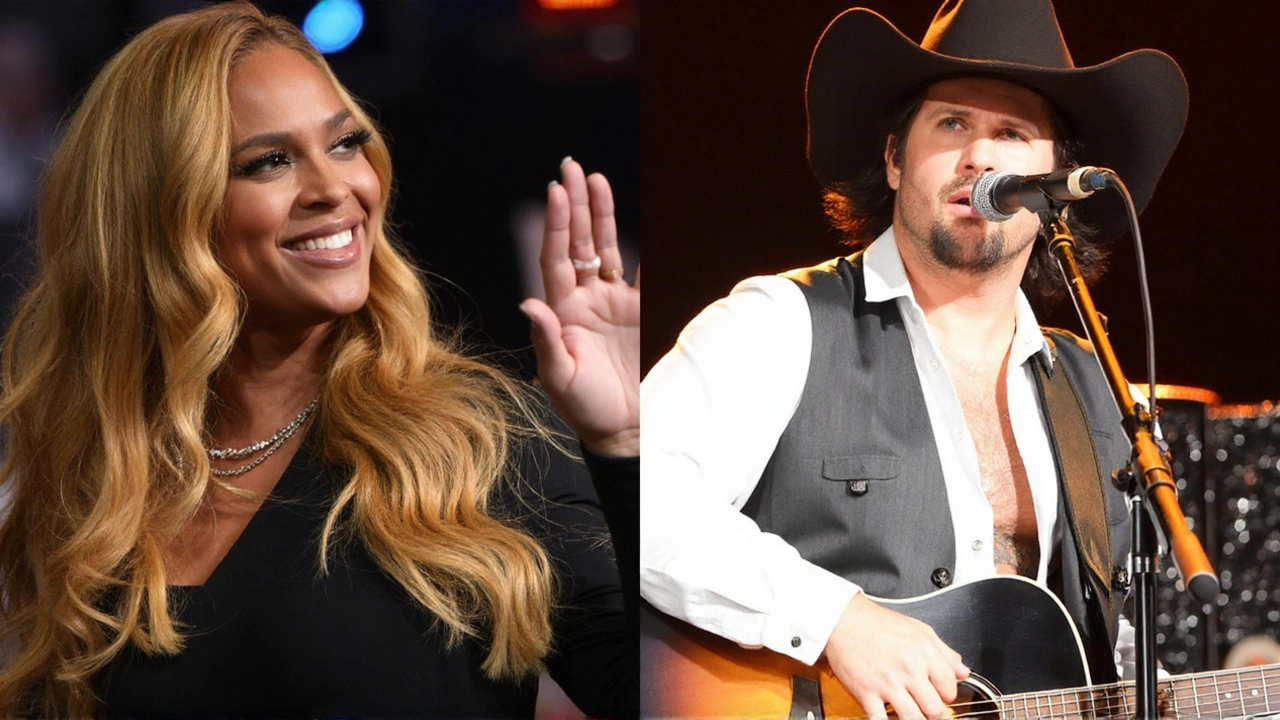One viral clip turned a rowdy summer show into a flashpoint: country singer Gavin Adcock tore into Beyoncé’s “Cowboy Carter,” telling a crowd her hit record isn’t country and never will be. The footage raced across social feeds, and the fallout hasn’t let up since. What started as a stage rant is now a full-on debate about who decides what counts as country—and who gets to participate.
What Adcock Said—and Why It Blew Up
Onstage, Adcock pumped up his crowd by pointing at the Apple Music country charts. He said only three artists sat ahead of him, and one was Beyoncé. Then came the line that lit the fuse: “That s**t ain’t country music and it’s never ever been country music.” The clip spread fast, thanks to the mix of star power, genre politics, and a blunt call-out that begged for a reaction.
He got one. Fans piled on across TikTok, Instagram, and X. Some cheered him for “protecting” the genre. Many more accused him of gatekeeping and chasing clout by using one of the biggest names in music as a stepping stone. That split is familiar in country: the old fight over who is “real” flares up every time the genre widens its borders.
The criticism gained even more traction when veteran country artist Charley Crockett weighed in. “I don’t need to put down a black woman to advance my music,” he said, calling the tactic embarrassing. People read that as a direct shot at Adcock’s approach, and it reshaped the conversation from a musical opinion into a question of respect and motive.
Adcock didn’t retreat. On Rolling Stone’s “Nashville Now” podcast, he backed his stance and tried to set expectations for anyone coming to his shows. All fans are welcome, he said—anytime—but the room is what it is: beer-soaked, loud, and built for “throwing down.” He even sells shirts that say, “I Survived a Gavin Adcock Concert,” leaning into the chaos as part of the brand.
That framing matters. Adcock is presenting himself as a no-filter performer with a barroom edge, the guy who says the thing out loud. In that lane, controversy is both hazard and fuel. The same viral clip that angers one set of listeners can push streams and ticket sales in another. In the algorithm era, outrage and marketing often ride in the same truck.
He also tried to soften the edges a bit. Adcock said he grew up hearing Beyoncé in the car and remembered her Super Bowl halftime show as “pretty kick a**.” That nod won’t change the core dispute. He still insists “Cowboy Carter” isn’t country. His critics say country isn’t a gated community, and Beyoncé didn’t need permission to step through the door.
Meanwhile, the numbers tell a different story than his rant. “Cowboy Carter” is still running on the country charts, pulling in new listeners month after month. The album also claimed Album of the Year at the 2025 Grammys, a milestone that pushed the debate into prime time. Awards don’t settle artistic arguments, but they do shift the center of gravity. Plenty of fans see the win as proof the project belongs where it’s sitting.
That split-screen—resentment on one side, hardware on the other—is exactly why this blew up. The dispute isn’t just about taste. It’s about who holds the keys to a genre that was built by a wider mix of voices than Nashville sometimes admits. Country has always borrowed, blended, and redefined itself. The fight is over who gets credit when it evolves.

The Bigger Fight Over "Real" Country
If you’ve followed country music for even a minute, this script feels familiar. New sounds push in. A gate slams shut. Then the door gets pried open. It happened when Shania Twain made pop-country unstoppable. It happened when Taylor Swift crossed over and took a generation with her. In 2019, “Old Town Road” by Lil Nas X was pulled from Billboard’s country chart, sparking a massive backlash and a hard conversation about who gets counted as country and why.
Those arguments always circle back to the same tension: tradition versus reach. Traditionalists want the core sound protected. Others argue that country’s roots run deeper than a single guitar tone or a pedal steel line. Gospel, blues, folk, and the Black string-band tradition all live in country’s DNA. When Beyoncé blends those threads, fans who know the history hear a homecoming, not an invasion.
“Cowboy Carter” leans into that history. The record fuses country structures with other Black American sounds and stories, foregrounding a lineage that’s often pushed to the margins. Whether a listener loves the album or not, that framework is why the project hit nerves. It challenges the idea that Nashville alone sets the rules.
There’s a practical angle, too. Streaming platforms are now the front door to country for millions of people. Editorial playlists, viral clips, and algorithmic boosts don’t ask permission from radio programmers. That shift weakens old gatekeepers and lifts artists who can pull culture into their orbit. Beyoncé can do that in any genre. Some hear that power and bristle. Others hear it and press play.
Inside the industry, the reaction is mixed but telling. Country radio still moves slower than streaming when it comes to new voices and sounds. Labels and publicists split the difference—playing to radio while feeding the social and streaming machines. Artists find their own corners: some lean into honky-tonk grit, others chase stadium hooks, and a growing group embraces hybrid sounds without apology.
Adcock has planted his flag in the first camp. The message is clear: his shows are rowdy, the language is blue, and the vibe is bunker-down country. That lane has a big audience, especially at outdoor festivals and college towns where “beer-soaked” isn’t a turnoff; it’s the point. The risk comes when the theatrics spill into the culture war. Clubs, sponsors, and festival bookers don’t love blowback. If the headlines won’t go away, some doors can close.
That doesn’t mean speaking bluntly is a career ender. It does mean the cost-benefit math changes as the audience grows. Star-making moments often arrive wrapped in complication. A stray video clip can draw new fans and burn bridges at the same time. Managing that tension is part of the modern job.
For Beyoncé, the calculus is different. She operates far beyond genre politics. When she engages country, the conversation inevitably turns into a referendum on country itself. The reaction to “Cowboy Carter” shows how far the audience has moved. The album’s chart runs and that 2025 Grammy win signal a bigger comfort with cross-pollination—and a hunger for stories country hasn’t always centered.
There’s also the question of representation. Black artists helped shape country from the start, yet they remain underrepresented on major labels and radio playlists. When a Black woman dominates a country chart or takes home a top award, it forces a long-delayed reckoning. Some fans say, “Finally.” Others ask, “Is this still country?” Those questions hang over every argument in this saga.
Adcock’s defenders argue he’s critiquing sound, not identity. His critics hear something else when a Black woman becomes a target in a genre that’s wrestled with inclusion for years. That’s why the words—and the way he framed them—matter. A rant about chords and fiddles rarely goes viral. A taunt aimed at a cultural icon does, especially when it hits a nerve that runs through the genre.
Even Adcock’s warning about his concert vibe plays into the story. He’s not courting polite applause; he’s staging a release valve. That can be thrilling for fans and jarring for listeners who found country through streaming playlists and are used to a different sort of show. The contrast explains some of the online crossfire. People aren’t just arguing about a record. They’re arguing about the culture around it.
Meanwhile, “Cowboy Carter” keeps converting skeptics the old-fashioned way—through songs that stick, features that spark curiosity, and production that rewards repeat listens. The record’s run on Apple Music’s country rankings isn’t a fluke. It’s the result of listeners returning, telling friends, and pulling tracks into their daily mixes. That’s what staying power looks like in 2025.
Here’s where the debate sits right now:
- Adcock’s onstage rant dismissed “Cowboy Carter” as not country. A fan video made it viral.
- Charley Crockett criticized the tactic, saying he wouldn’t put down a Black woman to boost his own music.
- On a Nashville podcast, Adcock doubled down, inviting all fans while describing his shows as “beer-soaked” and unapologetically raucous.
- Despite the backlash, Beyoncé’s album keeps charting and won Album of the Year at the 2025 Grammys.
From here, a few things could happen. The heat may fade as the internet moves on, leaving Adcock with a louder core following and a bigger set of skeptics. Or the controversy could linger, shaping bookings, brand deals, and festival invites. For Beyoncé, the project will likely keep expanding the audience that claims country without asking permission.
The biggest question remains the same: who gets to define country in an era when everything is up for remix? Purists won’t stop defending the guardrails. Innovators won’t stop testing them. And the rest of us will keep watching the tug-of-war play out on our phones in 30-second bursts—until the next clip drops and the cycle starts all over again.
Music scenes are loud, messy, and stubborn. That’s part of the appeal. Country is no exception. It’s built on family trees, porch traditions, studio magic, dive bars, and stadium singalongs. It holds the past in one hand and a cracked iPhone in the other. That’s why this fight is so fierce. It’s not just about a chart position or a line in a song. It’s about identity—and who gets to claim it with a straight face and a steel guitar.
For now, two things can be true at once. Adcock can throw a wild show and speak his mind. Beyoncé can make a country record that charts, wins awards, and pulls new fans into the tent. The audience will sort the rest out in streams, tickets, and word of mouth—the only votes that last longer than a viral post.

